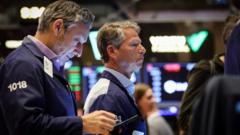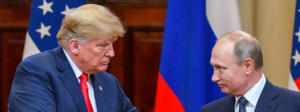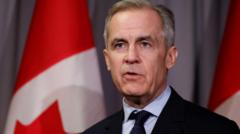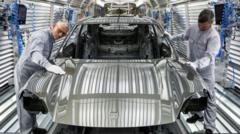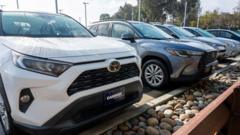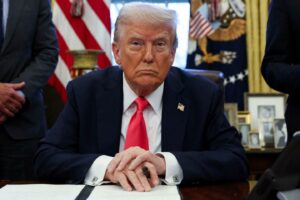As sweeping auto tariffs approach, many American consumers like Jeannie Dillard are left waiting and worrying about the financial implications while dealerships anticipate significant price hikes on foreign cars.
American Auto Buyers Face Uncertain Future Amid Incoming Tariffs

American Auto Buyers Face Uncertain Future Amid Incoming Tariffs
With President Trump's auto tariffs set to take effect, American car buyers are anxious about rising prices and financial strain.
As the impending auto tariffs announced by President Trump loom, American car buyers are preparing for a wave of uncertainty and potential price increases. Jeannie Dillard, a resident of Virginia, has been saving diligently to replace her stolen vehicle, but the looming 25% import tax on foreign cars and parts has her pausing her purchase. "If prices get too high, I'm obviously not going to buy something that I can't afford," she expressed.
Trump's tariff policy, set to take effect in early April, is characterized by a tax on imported vehicles and car components that experts warn could significantly inflate costs for consumers. While the administration claims the tariffs will stimulate economic growth and create American jobs, the real effects seem poised to ripple through the market.
Mohamad Husseini, co-owner of a Maryland used car dealership, noted that the current wholesale market prices have already surged, predicting that average vehicle prices could escalate in the coming weeks. "It's going to get worse," he remarked, hinting that a car that previously sold for $13,000 might soon reach $14,500 due to these tariffs.
Consumer responses reflect varying levels of alarm. Buyers like Robin Sloan, who previously intended to wait until summer to shop, have altered their plans to act faster in light of anticipated price hikes. Yet, she remains skeptical of the tariffs’ promised outcome: “I don’t think I would buy a car made in the United States just because of the tariffs,” she asserted.
The impact of these tariffs extends beyond individual purchases, as they are likely to affect the broader auto market due to the U.S. auto industry's deep connections with Canada and Mexico. John Heitmann, an automobile historian, pointed out that even quintessentially American vehicles might see increased sticker prices. A study from the U.S. International Trade Commission projects that imports could plummet by nearly 75%, leading to a 5% rise in average car prices domestically.
The overall sentiment among consumers and car dealers alike is one of unease and trepidation. Mya Fountain-Bunch opted to keep her car in good working order to dodge the uncertain purchasing landscape resulting from the tariffs, indicating a desire to sidestep financial strain in the coming years. As the auto industry braces for the stinging effects of these tariffs, many are left to ponder the real cost of President Trump's trade strategy.


